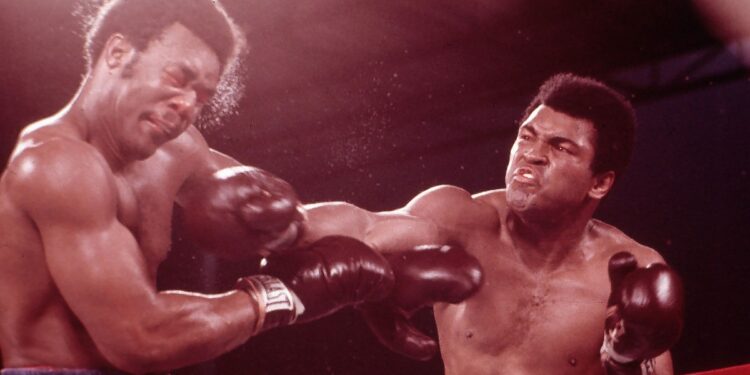It was more than a boxing match. On 30 October 1974, the world stopped to watch two heavyweights—Muhammad Ali and George Foreman—collide under the humid night sky of Zaire. What unfolded was not just a sporting event, but a defining moment for Africa, America, and global popular culture.
Ali’s comeback and the making of a legend
In 1974, Ali was no longer the unstoppable “Cassius Clay” of the early 1960s. He had been stripped of his title for refusing to fight in Vietnam, and many doubted whether the 32-year-old could face the younger, stronger Foreman—then the undefeated world champion, known for demolishing Joe Frazier and Ken Norton in mere rounds. Yet, in the heart of Africa, Ali saw his redemption.
Zaire’s president Mobutu Sese Seko financed the fight as a global showcase of African pride. The event, dubbed “The Rumble in the Jungle”, drew tens of thousands to Kinshasa’s 20 May Stadium and millions of viewers worldwide. The city pulsed with rhythm and anticipation; the Zaire 74 music festival brought together James Brown, Miriam Makeba, and B.B. King, turning the capital into a cultural carnival.
Tactics, tension and triumph
Ali’s “rope-a-dope” strategy—leaning on the ropes, absorbing Foreman’s blows and letting the champion tire himself—looked suicidal. But it was calculated brilliance. By the eighth round, Foreman’s punches had lost their thunder. Then, with a sudden burst of speed, Ali unleashed a series of precise combinations. Foreman fell, and the referee counted him out.
The crowd roared “Ali, bomaye!”—“Ali, kill him!”—as the underdog had reclaimed the heavyweight crown. For the first time, Africa had hosted an event that symbolised defiance, resilience, and unity. The victory transcended sport; it was a statement of identity and power for a continent emerging from colonialism.
Legacy and cultural resonance
“The Rumble in the Jungle” remains one of the most analysed fights in history. It marked the turning point in Ali’s career, proving that intelligence and spirit could triumph over brute force. It also redefined global sports marketing, television rights, and the intersection of politics and entertainment.
In Zaire, the fight lingered as both pride and paradox—a fleeting moment when Mobutu’s authoritarian regime dressed itself in the robes of liberation. But for Ali, it cemented his place as more than a boxer: he became a global icon of dignity, courage, and wit.
Newshub Editorial in Africa – 30 October 2025



Recent Comments